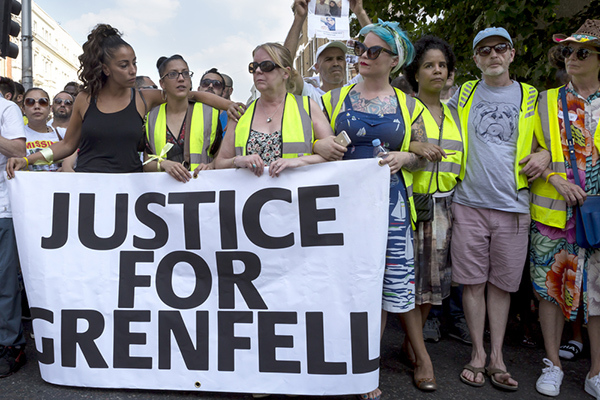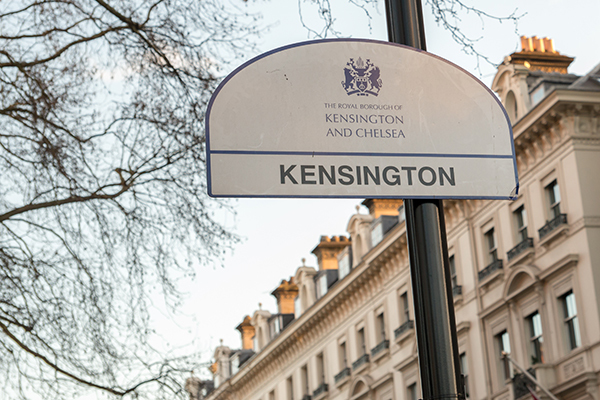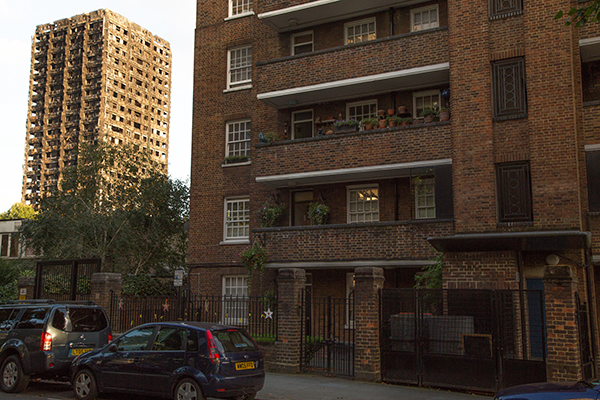You are viewing 1 of your 1 free articles
Sixty-three households evacuated from Grenfell estate set for rent rise
Sixty-three households who were evacuated after the Grenfell Tower fire last June are in line for a significant rent rise, according to council papers.
Former residents of the Walkways, low-rise blocks of council housing near the tower, and other nearby buildings, have been living in temporary accommodation since the blaze ripped through Grenfell, killing 72 people.
Kensington & Chelsea Council has been charging them the same rent they paid for their council homes, but has said that any residents still living in temporary accommodation beyond 22 October will have to pay temporary accommodation rents, which are much higher.
Residents were given a deadline of 30 September to decide whether they would return to their former homes or not. Some do not wish to return to the blocks due to trauma from the fire.
According to council papers, 79 households were still living in temporary accommodation on 4 October. Of these, 16 have said they will return to their former homes.
Assuming these 16 households return before 22 October, the remaining 63 will have to pay temporary accommodation rent.
The council said it has written to all 79 households telling them the rent they will have to pay and inviting them to meet with advisors to apply for more housing benefit if necessary.
Inside Housing understands that some of the households are not currently receiving any form of housing benefit and do not wish to apply.
Emma Dent Coad, MP for Kensington, told Inside Housing there was “an atmosphere of confusion and frustration... as the council tries to ‘encourage’ people back into their former accommodation”.
She added: “All of this is contributing to the deteriorating mental health we have seen among many affected people.”
Council papers also revealed that 15 households from these blocks have been rehoused to a new home, and that four of these are now living in overcrowded conditions.
Six households have accepted offers of new homes and have yet to move in, of which two will be living in overcrowded conditions.
A source with knowledge of the rehousing process told Inside Housing that part of the issue is that the council does not own enough four-bedroom homes to avoid this overcrowding.
The source added: “I find it very hard to believe that people are not being coerced if they’re accepting places that are overcrowded.”
A spokesperson for the council said: “We’re taking great care to calculate each weekly rent amount before we advise each tenant of it. The extent of the rent rises (or more accurately, the rise in the contribution the tenant will make) does depend upon each tenant’s income and circumstances.
“We’re therefore consulting closely by carrying out a financial assessment of each tenant in order to establish how much housing benefit they would first receive towards their rent.”
Update: at 15.45 on 17.10.18 This story was updated with a comment from the council.










